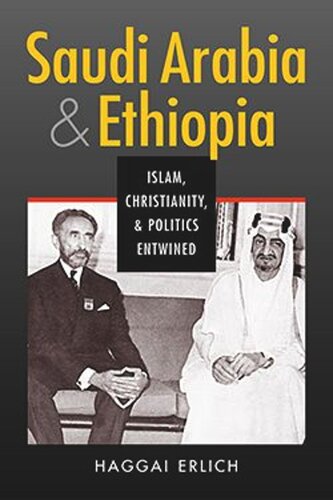

Most ebook files are in PDF format, so you can easily read them using various software such as Foxit Reader or directly on the Google Chrome browser.
Some ebook files are released by publishers in other formats such as .awz, .mobi, .epub, .fb2, etc. You may need to install specific software to read these formats on mobile/PC, such as Calibre.
Please read the tutorial at this link: https://ebookbell.com/faq
We offer FREE conversion to the popular formats you request; however, this may take some time. Therefore, right after payment, please email us, and we will try to provide the service as quickly as possible.
For some exceptional file formats or broken links (if any), please refrain from opening any disputes. Instead, email us first, and we will try to assist within a maximum of 6 hours.
EbookBell Team

4.0
6 reviewsWhat is the significance of Islam's growing strength in Ethiopia? And what is the impetus for the Saudi financing of hundreds of new mosques and schools in the country, the establishment of welfare organizations, and the spread of the Arabic language? Haggai Erlich explores the interplay of religion and international politics as it has shaped the development of modern Ethiopia and Saudi Arabia. Tracing Saudi-Ethiopian relations from the 1930s to the present, Erlich highlights the nexus of concrete politics and the conceptual messages of religion. His fresh approach encompasses discussions of the options and dilemmas facing Ethiopians, both Christians and Muslims, across multiple decades; the Saudis' nuanced conceptualization of their Islamic "self" in contrast to Christian and Islamic "others"; and the present confrontation between Ethiopia's apolitical Islam and Wahhabi fundamentalism. It also provides new perspectives on both the current dilemmas of the Wahhabi kingdom and the global implications of the evolving Saudi-Ethiopian relationship.